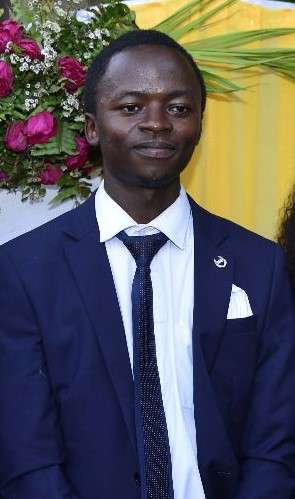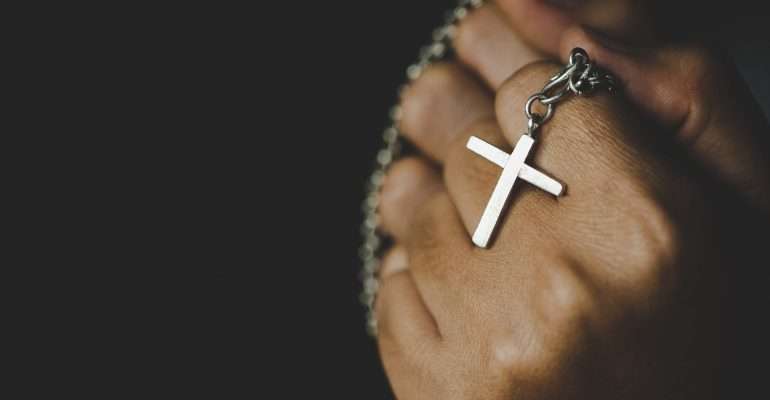
Readings 4th Sunday of Lent (Year A):
1st Reading. 1 Samuel 16:1b, 6 – 7, 10 – 13a.
Responsorial Psalm. Psalms 23: 1 – 3a, 3b – 4, 5, 6
2nd Reading. Ephesians 5:8 – 14
Gospel; John 9:1 – 41
Reflection of the reading by
Monsieur Dieumerci LONDJIRINGA DRAMANI
Beloved of God Shaloom!
As the church celebrates the fourth Sunday of Lent, today’s reading from the Gospel of John, is about the healing of the man born blind, which invites us to focus on the physical and spiritual aspects of sight and light. In the first part of today’s Gospel, we hear Jesus’ response to a prevalent belief of his time: that misfortune and disability were the result of sin. That belief is why Jesus is asked the question of whose sin caused the man’s blindness his own or his parents’. Jesus does not answer directly, but instead gives the question an entirely different dimension through this man’s disability, God’s power will be made manifest. Jesus then heals the man. This is the key message in today’s Gospel.
On the first Sunday of Lent, Jesus was tempted by the devil; in his condition of physical weakness, he resisted the three temptations summarizing the realities of our daily life in particular envy, power forgetting that everything comes only from the father, the creator of all things.
On the second Sunday, Jesus was transfigured in the presence of his three apostles on the mountain; a sign of retreat, of prayer; an opportunity to review his life. A voice from heaven like the day of baptism reminding us that Jesus is the beloved son of God, and asking us to listen to him.
On the third Sunday, Jesus presents himself as the water of life, whoever drinks this water will never thirst again; by asking this Samaritan woman for water, Jesus comes to end the conflict between the Jew and the Samaritan, who could not have a relationship for a long time; he comes to bring peace between these two nations.
Today; fourth Sunday of Lent revelation and moment of enlightenment comes when the man born blind encounters Jesus again. Having heard the news of his expulsion, Jesus seeks out the man born blind and reveals himself to him as the Son of Man. In this moment, the man born blind shows himself to be a man of faith and worships Jesus. The teaching of this Sunday can be summed up in a short word, this word is “FAITH”.
It is not for the first time to listen to this little word, we have listened to it several times through the Holy Scriptures and more often than not, we find it difficult to live this faith. To have faith means to recognize that we are created by God and that everything comes from him, nothing being impossible ; doing so, we will inherit his inexhaustible love.
The healing is controversial because Jesus heals on the Sabbath. The Pharisees, the religious authorities of Jesus’ time, understood that the law of Moses forbade work (including healing) on the Sabbath. They also have trouble believing that Jesus performed a miracle. To determine whether the man was really born blind, the Pharisees question him and his parents. The man challenges the leaders of the synagogue about their assessment of the good that Jesus has done.
Jesus today opens our eyes and frees us from fear by becoming a guide for all of us. Each time we sin, our eyes are clouded and we are bounded by our sins; the sins to which we have become slaves, preventing us from being spiritually free. After Jesus heals the blind man, Jesus challenges this view by stating that the man’s blindness was not caused by sin, but rather was an opportunity for God’s power to be displayed, even though he does that on a sabbath, we are asked to practice carrying out good deeds, it does not matter the time or place or to whom? What matters is how we can be able to see the good in each one of us, to forsake our sins, and follow Him.
Prayer: On this the fourth Sunday of Lent, let us ask God to heal our spiritual blindness which prevents us from seeing as God sees, so that with the Blind Man we may be able to say: “I do believe, Lord” and then proceed to worship him as he did.
By, Monsieur Dieumerci LONDJIRINGA DRAMANI Student


Comments are closed.